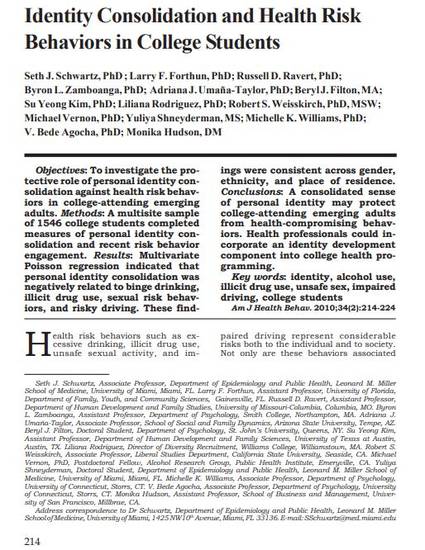
Article
Identity consolidation and health risk behaviors in college students.
American Journal of Health Behavior
(2010)
Abstract
OBJECTIVES: To investigate the protective role of personal identity consolidation against health risk behaviors in college-attending emerging adults. METHODS: A multisite sample of 1546 college students completed measures of personal identity consolidation and recent risk behavior engagement. RESULTS: Multivariate Poisson regression indicated that personal identity consolidation was negatively related to binge drinking, illicit drug use, sexual risk behaviors, and risky driving. These findings were consistent across gender, ethnicity, and place of residence. CONCLUSIONS: A consolidated sense of personal identity may protect college-attending emerging adults from health-compromising behaviors. Health professionals could incorporate an identity development component into college health programming.
Disciplines
Publication Date
2010
DOI
10.5993/AJHB.34.2.9
Citation Information
Seth J. Schwartz, Larry F. Forthun, Russell D. Ravert, Byron L. Zamboanga, et al.. "Identity consolidation and health risk behaviors in college students." American Journal of Health Behavior Vol. 34 Iss. 2 (2010) p. 214 - 224 Available at: http://works.bepress.com/rob-weisskirch/24/
